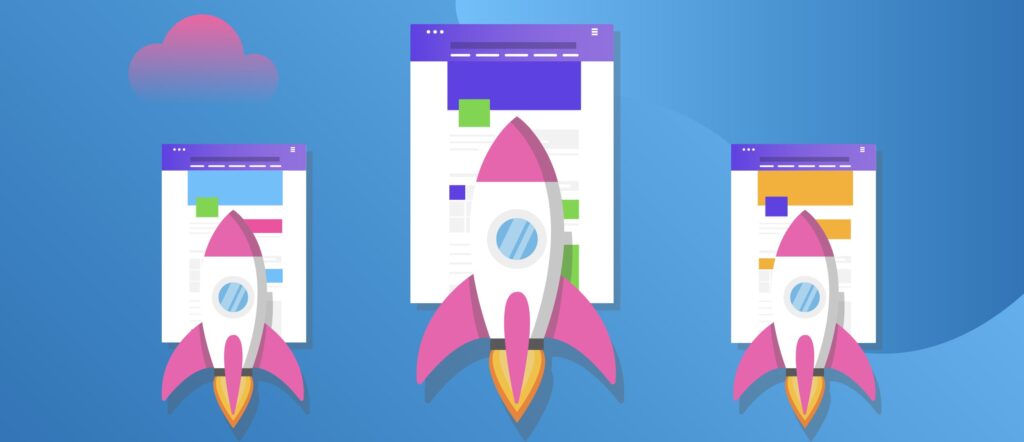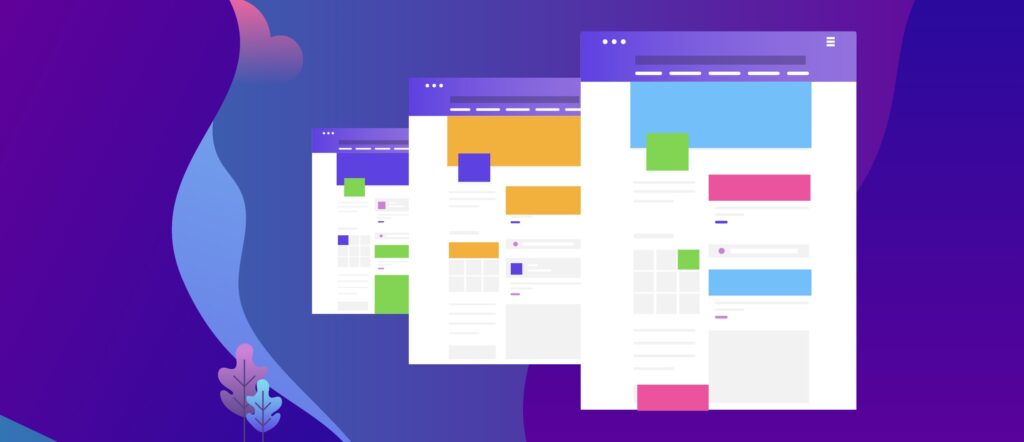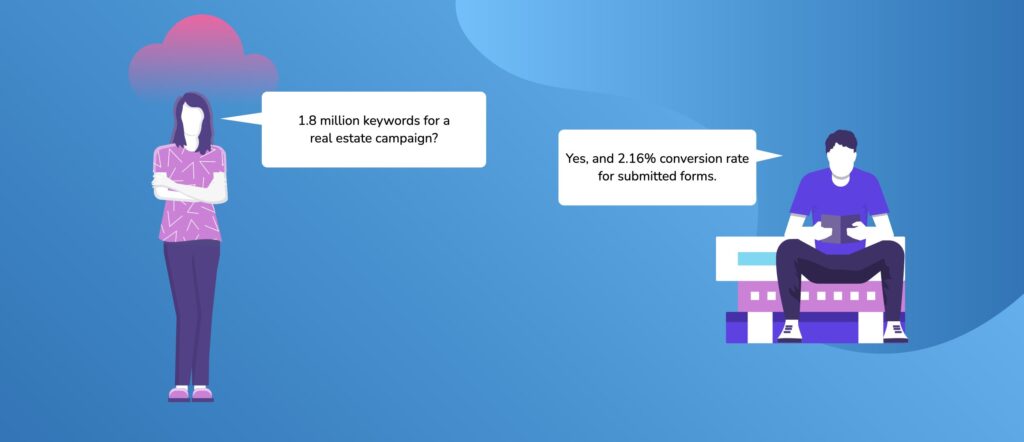
Large or Small Search Campaigns – Which is Better?
In the dynamic world of online marketing, search engine advertising (SEA) has established itself as a key element for digital success. The trend of deploying small SEA search campaigns that focus on a few keywords and rely heavily on automation by Google has increasingly established itself. While this method offers simplicity and convenience, it raises the question: Are we not losing important advantages and conversion potentials that larger, more detailed campaigns offer through more precise content on ads and landing pages? This article examines the characteristic differences between small and large SEA search campaigns and explores the advantages and disadvantages of both approaches.
Characterization of Small and Large SEA Search Campaigns
Small SEA search campaigns are primarily characterized by their simplicity and efficiency. They use a limited number of keywords, often with the keyword option “broad match,” which means that ads are also placed for loosely related search terms. These campaigns rely heavily on Google’s automated algorithms to reach their target audience – after all, Google itself recommends this method, believing that with the help of artificial intelligence and broad match campaigns, it can be more powerful and require less maintenance. This approach saves time and resources as it requires fewer ongoing adjustments and monitoring.
In contrast, large SEA search campaigns cover a wide range of keywords explicitly and concretely for each search term, creating specific ads and landing pages for each keyword group. These campaigns require careful planning and continuous optimization, which can pay off through higher conversion potential because the ads and landing pages subsequently generate a much better response to the user’s search query.
Discussion of Advantages and Disadvantages
On one hand, small SEA search campaigns score points primarily for their simplicity and time-saving nature. They are easier to manage and quicker to set up, making them particularly attractive for businesses with limited resources. Added to this is the strength of automated optimization by Google’s algorithms, which allow for effective audience targeting without the need for extensive manual intervention. However, small campaigns can lose control due to this dependency on Google’s automation, leading to less precise ad placements.
On the other hand, large SEA search campaigns offer clear advantages in terms of control and customization. They allow companies to more precisely tailor their messages to their target audiences through specifically designed ads and landing pages. These campaigns reach more specific market segments through a broader spectrum of keywords, thus offering improved audience targeting. An important advantage is also the detailed data analysis that results from the more extensive data points of large campaigns. Besides providing clues for future optimizations, they deliver valuable market research data. However, disadvantages include higher effort and greater complexity. The creation and management of numerous ads and landing pages require more resources, and the wider keyword selection generally leads to higher costs. According to common practice, the effort is not proportional to the return.
The Informational Sector Accounts for Up to 80% of Search Volume
However, larger campaigns are particularly appealing when the keyword world revolves around the informational sector. Examples include campaigns on green energy systems or real estate, where a variety of topics and questions arise during purchasing. Informational search queries, along with transactional and navigational queries, are the main types of search intentions. They dominate the search volume on the Internet, accounting for 80% of it according to a study. These queries range from general knowledge questions (“How does a heat pump work?”) to specific inquiries (“Buy a manor house without a broker”).
Informational search queries are particularly interesting for marketers and content creators, as they offer the opportunity to gain attention and trust from the audience through valuable, informative content. By generating tailored answers and solutions for common questions and needs, companies can build authority in their field, leading to higher brand recognition and customer loyalty over time. Products and services that require explanation are particularly suitable for this. However, due to the effort barrier, the informational sector has so far been neglected in its richness of detail or only roughly covered by small-scale broad match campaigns.
So, How to Realize Tailored Content Without Much Effort?
lyftyfy Enables Highly Individualized Ads and Landing Pages for Each Keyword
The automated creation of highly individualized ads & landing pages for every conceivable topic in the field of SEA is a feature of the new campaign architecture lyftyfy. This tool represents a new approach in SEA. Dynamic content is automatically generated for each keyword combination with this tool, answering every conceivable search query with precise content. The number of pages to be generated, whether a hundred, a thousand, or up to 4 million (Google’s limit), has no impact on the effort, as it always remains the same.
Large search campaigns with many keywords can now be more effective than small campaigns with a few keywords. Targeted and more specific audience engagement leads to higher relevance of the ads, improving the chances of engagement and conversion.
Conclusion
The choice between small and large SEA search campaigns depends on various factors, such as company size, available resources, and specific marketing goals. By eliminating the effort barrier, even large campaigns remain appealing to companies despite the ubiquitous Google algorithm. While small campaigns are excellent for companies looking for a simple, cost-effective solution without much accompanying effort, larger campaigns can convince companies with more specific audience targeting. For this, generating precise content for each target group or search query is necessary for an efficient campaign, but this effort can be minimized with innovative solutions like lyftyfy.


